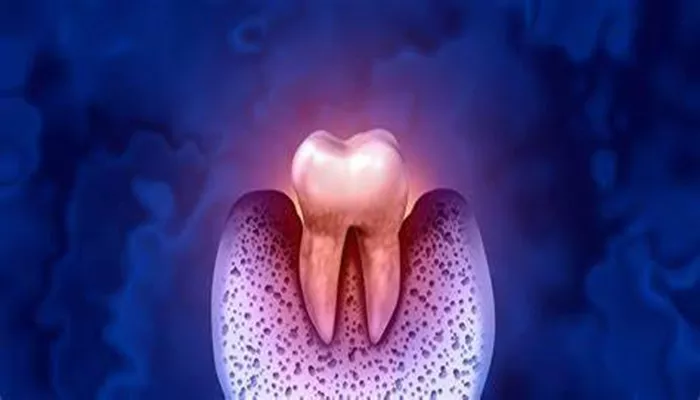Periodontal disease, also known as gum disease, is a common condition that affects the health of the gums and supporting structures of the teeth. It is a progressive condition that can lead to tooth loss if left untreated. Understanding how periodontal disease occurs is crucial for maintaining good oral health. In this article, we will explore the causes of periodontal disease and the factors that contribute to its development.
What Is Periodontal Disease?
Periodontal disease is an infection of the gums and the bones that support the teeth. It is caused by the buildup of plaque, a sticky film of bacteria that forms on the teeth. If plaque is not removed through regular brushing and flossing, it can harden into tartar, which is more difficult to remove.
As the disease progresses, the gums can become inflamed and bleed easily. The pockets between the teeth and gums can deepen, allowing more bacteria to accumulate. Over time, the supporting bone can be destroyed, leading to tooth loss.
How Do You Get Periodontal Disease
1. Plaque Buildup
Plaque is the primary cause of periodontal disease. It is a sticky film of bacteria that forms on the teeth and gums. If plaque is not removed through regular brushing and flossing, it can harden into tartar, which is more difficult to remove.
Plaque contains harmful bacteria that release toxins, which can irritate the gums and cause inflammation. Over time, the inflammation can lead to the destruction of the supporting bone and tissue.
2. Poor Oral Hygiene
Poor oral hygiene is a major risk factor for periodontal disease. If you do not brush and floss regularly, plaque can build up on your teeth and gums, leading to inflammation and infection.
It is recommended to brush your teeth twice a day for at least two minutes each time and to floss once a day. Regular dental cleanings can also help remove plaque and tartar that you may have missed during brushing and flossing.
SEE ALSO: Does Bone Grow Back After Periodontal Disease?
3. Smoking
Smoking is a major risk factor for periodontal disease. Smokers are more likely to develop the disease and to have more severe cases than non-smokers.
Smoking weakens the immune system, making it harder for the body to fight off infection. It also reduces blood flow to the gums, which can slow healing and make it harder for the body to fight off bacteria.
4. Hormonal Changes
Hormonal changes, such as those that occur during pregnancy, puberty, and menopause, can make the gums more sensitive and more susceptible to inflammation.
During pregnancy, for example, increased levels of estrogen and progesterone can cause the gums to become more sensitive to plaque.
This can lead to pregnancy gingivitis, a form of periodontal disease that is common during pregnancy.
5. Certain Medications
Certain medications can increase the risk of periodontal disease.
These include medications that reduce saliva flow, such as antidepressants and blood pressure medications, and medications that cause gum overgrowth, such as some anti-seizure medications and immunosuppressants.
Reduced saliva flow can make it harder for the mouth to wash away food and neutralize acid, leading to a buildup of plaque.
Gum overgrowth can make it harder to keep the gums clean and can lead to inflammation and infection.
6. Genetics
Genetics can play a role in the development of periodontal disease. Some people are more susceptible to the disease than others due to their genetic makeup.
Researchers have identified several genes that may be linked to an increased risk of periodontal disease. These genes may affect the body’s immune response to bacteria or the way the body responds to inflammation.
7. Chronic Diseases
Certain chronic diseases, such as diabetes and heart disease, can increase the risk of periodontal disease.
Diabetes can weaken the immune system and make it harder for the body to fight off infection. It can also cause changes in the blood vessels that can lead to inflammation and tissue damage.
Heart disease and periodontal disease are also linked. Researchers believe that the inflammation associated with periodontal disease may contribute to the development of heart disease.
Stages of Periodontal Disease
Periodontal disease progresses through several stages:
Gingivitis: This is the earliest stage of the disease. It is characterized by red, swollen, and bleeding gums. At this stage, the disease is reversible with proper treatment and improved oral hygiene.
Early Periodontitis: In this stage, the gums begin to pull away from the teeth, forming pockets that can become infected.
The supporting bone may begin to be destroyed.
Moderate Periodontitis: The pockets deepen, and more bone and tissue are destroyed. Teeth may begin to loosen.
Advanced Periodontitis: This is the most severe stage of the disease.
The pockets are very deep, and a significant amount of bone and tissue have been destroyed. Teeth may fall out or need to be extracted.
Prevention And Treatment
The best way to prevent periodontal disease is to maintain good oral hygiene. This includes brushing and flossing regularly, using an antiseptic mouthwash, and visiting your dentist for regular cleanings and checkups.
If you do develop periodontal disease, treatment will depend on the stage of the disease. In the early stages, treatment may involve a deep cleaning to remove plaque and tartar from below the gumline. In more advanced cases, surgery may be necessary to repair damaged tissue and bone.
Conclusion
Periodontal disease is a common condition that can have serious consequences if left untreated. Understanding the causes of the disease, such as plaque buildup, poor oral hygiene, smoking, hormonal changes, certain medications, genetics, and chronic diseases, is crucial for maintaining good oral health.

